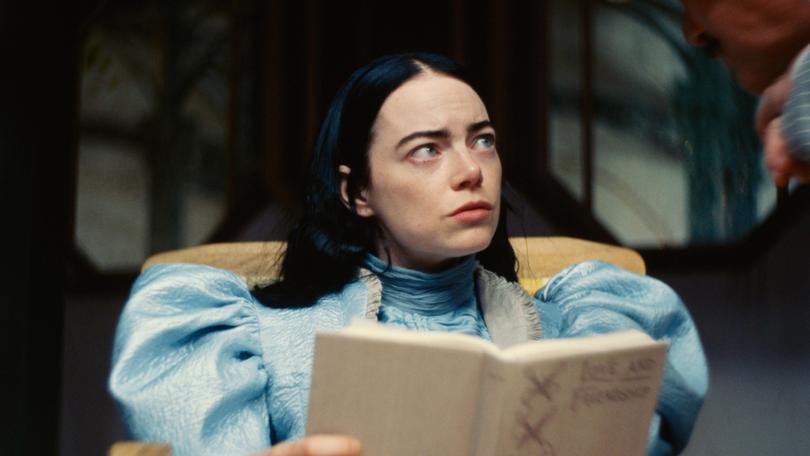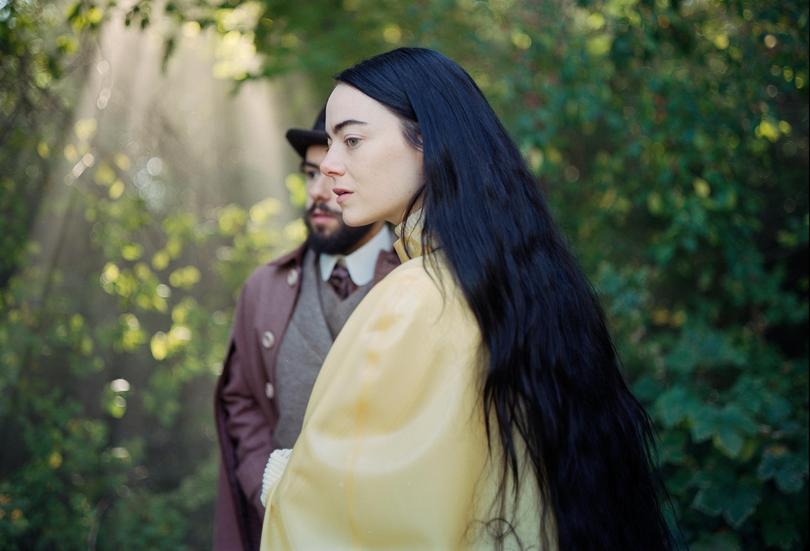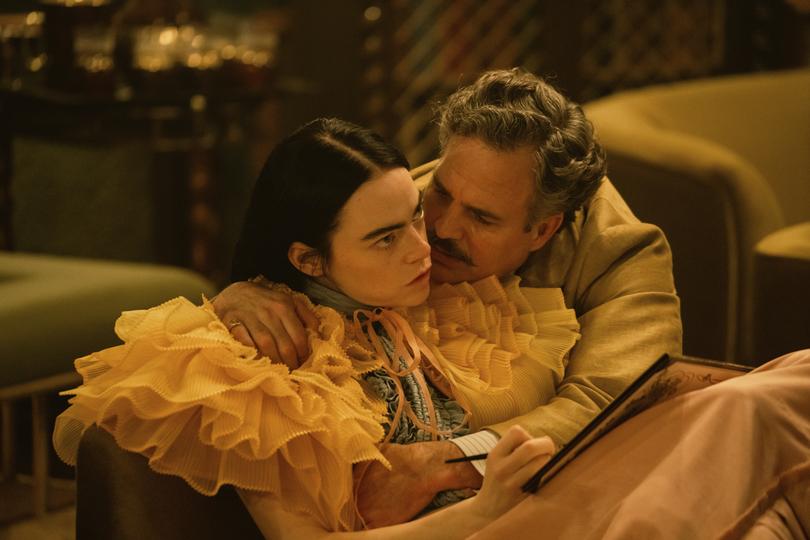Poor Things review: The world is better having this wonderfully weird movie in it
Poor Things is wonderfully weird and liberating, and it’s about 47 different kinds of funny. One of the year’s best.

In Godwin Baxter’s home, there’s a rooster that barks like a dog, a chicken with the head of a bulldog and a duck-goat hybrid. Among this menagerie of scientific experiments, there’s also Bella Baxter.
Bella appears to be like every other young woman but with Morticia Adams hair. If you spend more than 15 seconds in her company, you’ll realise she’s not. She’s curious and childlike, as if she was born yesterday. Because she was.
Yorgos Lanthimos’s Poor Things, starring Emma Stone, Willem Dafoe and Mark Ruffalo, is a gender reversed Frankenstein-ian story with a feminist liberation twist. And it’s bloody marvelous.
Sign up to The Nightly's newsletters.
Get the first look at the digital newspaper, curated daily stories and breaking headlines delivered to your inbox.
By continuing you agree to our Terms and Privacy Policy.Weird, off-kilter and original, Poor Things is equally discombobulating and charming, a rare feat that only a filmmaker as gutsy as Lanthimos can pull off. You expect the unexpected from the idiosyncratic director of The Lobster, Killing of a Sacred Deer and The Favourite.
You also expect to be pulled into an immersive, sharply drawn world that has a different cadence to your own. Lanthimos has yet to fail.
With a screenplay by Australian writer Tony McNamara (who also co-wrote The Favourite and already has another collaboration with Lanthimos in the pipeline), Poor Things is every kind of funny. It can be wicked, droll, whimsical, uproarious, uncomfortable and ridiculous. It elicits every manner of laughs from full-throated guffaws to a wry, appreciative chuckle.
Godwin (Dafoe) is the “mad scientist”, the Dr Frankenstein of the piece. A man with a puzzle-pieces face, he “created” Bella when he came upon a young, pregnant woman who had suicided. Her reanimates her corpse by swapping out her brain for that of her still-alive baby’s.

Bella is a quick study as she learns more about the world and its expectations of her. But instead of boxing herself into society’s rigidity, she casts off all the men who try to control or own her - including her maker, who she calls God, Max (Ramy Youssef), a young medical student who is engaged to her, and Duncan (Ruffalo), an absolute bounder of a selfish prick but who is apparently preternaturally gifted as a lover.
Eager to see the world, Bella sets off on a grand journey with Duncan. She’s frank about her sexual exploration and comments on new pleasures with a matter-of-fact honesty. Bella is what life could be without shame; if we could all experience everything for what it is.
Indulging in what some may view as hedonism carries no such judgmental burdens with Bella. Spitting out food at the table because she doesn’t care for it? Yes. Wild sexcapades any time of the day? Of course. Scoffing multiple Portuguese tarts? Why not.

It’s like watching someone give in completely to her id but without the negative connotations. Bella refuses to give in to what others want from her, but not as a deliberate act of defiance, she’s just doing what feels right to her. Imagine that, to be free to demand your own context.
Bella is the embodiment of freedom – and there is a lot in Poor Things about the female body and how to revel in its joys, and divorce it from its anxieties and those who seek to control it.
McNamara’s delightful dialogue dances around your ears, Shona Heath and James Price’s imaginative, pastel-coloured, Gaudi-esque production design of a magical realism Victorian world dazzles while Stone continues to impress with her big swings.
Stone could be making accessible, escapist crowd-pleasers but she keeps challenging herself, and the audience, with ambitious projects and pitch-perfect unconventional performances.
Poor Things is a fearless film and the world is better for having it in it.
Rating: 4.5/5
Poor Things is in cinemas on Boxing Day
Originally published as Poor Things review: The world is better having this wonderfully weird movie in it

